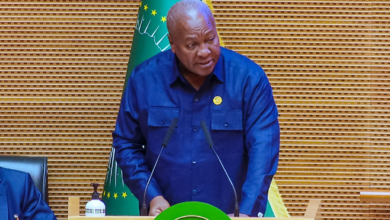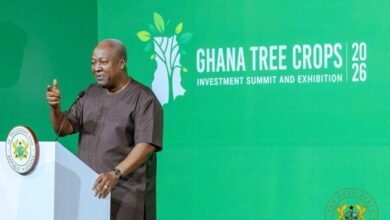Summit of the OIF : repositioning the Francophonie on the global stage
The Francophonie Summit, which will be held in Paris on October 4 and 5, 2024, will feature crucial discussions on the future of the French language and its role in a rapidly changing world. As the number of French speakers grows, the Francophonie must address economic, cultural, and technological challenges to maintain its influence.

By the editorial staff
In October 2024, Paris will host the next Francophonie Summit. This international event brings together the leaders of 88 member countries and governments, representing nearly 300 million French speakers worldwide. A major event as the Francophonie finds itself at a critical point in its history. The international landscape is shaped by the rise of new powers, geopolitical conflicts, digital transition, and climate upheavals. The Paris 2024 Summit aims to reposition the Francophonie as a key player in global governance by strengthening its capacity to act on issues as diverse as peace, security, sustainable development, and the fight against inequalities.
Francophonie is more than just a language; it is a space of solidarity, of shared values, but also a lever for concrete actions in the economic, cultural, and political fields
Louise Mushikiwabo, Secretary General of the International Organization of the Francophonie (OIF), emphasizes the importance of this event in the context of major global upheavals: « Francophonie is more than just a language; it is a space of solidarity, of shared values, but also a lever for concrete actions in the economic, cultural, and political fields.”

The main challenge of the summit will be to determine how the Francophonie can remain an influential player on the international stage, while English continues to dominate in economic and scientific exchanges. However, French is experiencing steady growth, especially in Africa. According to OIF figures, the number of French speakers could reach 750 million by 2050, mainly in sub-Saharan Africa, which will be the beating heart of the Francophonie. For Mushikiwabo, “Africa is the future of French, and it is on this continent that the language must reinvent itself to meet the expectations of younger generations.”
Africa is the future of French, and it is on this continent that the language must reinvent itself to meet the expectations of younger generations

Africa indeed plays a central role in the Francophonie, both by the number of its speakers and its demographic and cultural dynamism. Of the 88 member states and governments of the OIF, 32 are African, making the continent the heart of the French-speaking community. By 2050, it is predicted that 85% of the world’s French speakers will be African, highlighting the strategic importance of Africa for the future of the French language. The Paris summit must therefore respond to the aspirations of African countries, particularly in education, economic development, and access to technology. The continent’s specific challenges, such as youth, unemployment, and vulnerability to climate crises, must be at the heart of the discussions to consolidate Africa’s role as the driving force of the global Francophonie.
This is at the core of Louise Mushikiwabo’s action since her election in 2018 as head of the Organization. The former Rwandan Minister of Foreign Affairs has left her mark on the institution’s leadership, characterizing her first term with a desire to modernize the Francophonie, making it more inclusive and forward-looking. Under her leadership, the OIF has strengthened its role in economic cooperation and the promotion of the French language in a multilingual global context. Louise Mushikiwabo has also focused on the role of youth and women within the Francophonie, while advocating for greater solidarity between French-speaking countries of the North and South. Her leadership has repositioned Africa as a key player within the Francophonie, while opening up perspectives for strengthened partnerships with other regions of the world. She has also made the strengthening of cultural and creative industries in Africa a central part of the Organization’s mission. Representing an essential lever for economic development and the promotion of cultural diversity, these industries have received increased support within the Francophonie. By highlighting the richness of African artistic, cinematic, literary, and musical heritage, the OIF has sought to encourage local production while facilitating access to international markets. Initiatives such as creation support funds, training for young talents, and collaborations with tech actors have structured these sectors, offering new employment and exposure opportunities for Africa. At the Paris summit, these issues will once again be on the agenda, with the aim of consolidating the progress made and opening new perspectives for French-speaking creators on the continent. The upcoming Paris summit will be a key moment to assess the progress made under her leadership and define the next steps in her action.
The Francophonie must be a force that supports sustainable and inclusive development by highlighting the creativity of young people and women
However, the challenges are numerous and significant. The global economic slowdown, climate upheavals, and geopolitical tensions directly impact French-speaking countries, particularly in Africa. The summit will thus need to address pressing issues such as access to education, training, and technological innovation. « The Francophonie must be a force that supports sustainable and inclusive development by highlighting the creativity of young people and women, » insists Mushikiwabo.
Economic Francophonie is a crucial issue for the future of member countries. The French-speaking space includes very diverse economies, ranging from developing countries to emerging and industrialized economies. The 2024 summit will be an opportunity to strengthen economic and trade partnerships among members, focusing on South-South exchanges and developing cooperation projects in sectors such as agriculture, renewable energies, and information technologies.
Two highlights : The Francophonie Festival: Rebuild the World and FrancoTech

The highest body of the OIF, the Francophonie Summit brings together the 88 member states and governments of the OIF to define the strategic orientations of the Francophonie. The summit allows for the examination of new state and government membership applications and the election of the Secretary General of the Francophonie (four-year term). The 2024 summit will not be elective, as the last election was held in Djerba, Tunisia, in 2022.
Discussions will also focus on the place of French in the digital age. In an increasingly connected world, mastering digital tools is crucial for the development of French-speaking countries. In 2022, only 32% of the population in French-speaking Africa had access to the internet. A digital divide that the OIF aims to bridge by accelerating initiatives to strengthen digital inclusion.
A theme notably addressed during FrancoTech, one of the highlights of the summit. The fair, which aims to demonstrate that language can be a driver of innovation and transformation in a world where digital technology plays an increasingly central role, will showcase startups and technological innovations that use French as a development tool.
A second highlight, the Francophonie Festival: Rebuild the World, is a space for reflection where young thinkers, artists, and activists from the French-speaking world will present their visions for a more inclusive and united future.
In summary, the 2024 Francophonie Summit in Paris will be an opportunity to rethink the role of the French language in a globalized world. Between the growth in the number of speakers and socio-economic challenges, the future of the Francophonie depends on its ability to adapt and innovate while remaining true to its founding values.
For more information : www.francophonie2024.gouv.fr






